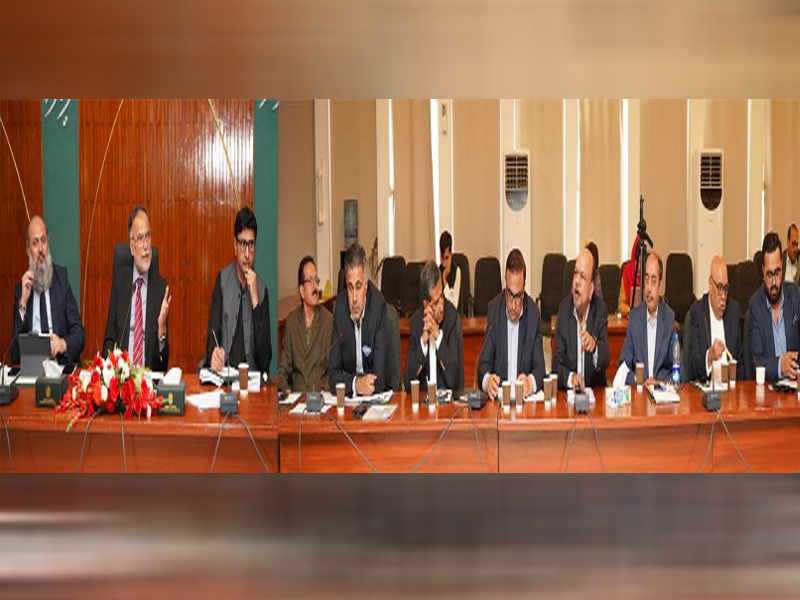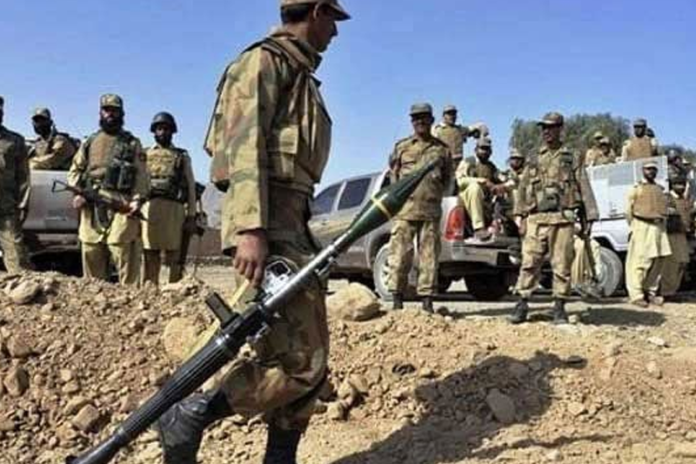Ahsan Iqbal leads key meeting to revamp EFS

- 129
- 0
ISLAMABAD: The third meeting of the Prime Minister's Committee on Export Facilitation was held today under the leadership of Ahsan Iqbal, Federal Minister for Planning and Special Initiatives, and Jam Kamal Khan, Federal Minister for Commerce.
This crucial meeting was attended by senior officials from the Ministry of Commerce, the Federal Board of Revenue (FBR), and representatives from other ministries. Additionally, over 60 business community representatives, including leaders from the textile industry, participated in the session via video link to provide their input. Minister Ahsan Iqbal emphasized the importance of the Prime Minister's initiative to review and improve the Export Facilitation Scheme (EFS).
The goal of the review is to provide a more comprehensive framework to support exporters and enhance Pakistan's export potential, ultimately contributing to the nation's economic stability. He stressed the government's dedication to creating a business-friendly environment aligned with its export strategy, which will encourage the business community to adapt to global trends. One of the key points discussed during the meeting was Pakistan's ambitious target of achieving $60 billion in exports by 2029. The Minister underscored the critical role of exports in the country's economic future, stating that sustainable and rapid export growth is necessary for long-term economic success.
He also emphasized that strengthening Pakistan's textile industry was essential for competing in the global market. Iqbal stated that significant value addition in the textile sector is needed, as local businesses currently lack competitive value chains that can propel Pakistani products into global markets. The Minister further highlighted the importance of the garments and apparel industry as the future of Pakistan's export economy. He made it clear that facilitating exporters in achieving the nation's export targets is a top priority for the government. To address this, the government's Uraan Pakistan plan was outlined, which focuses on eight key areas for export growth: agriculture, industries, services, IT, mining, manpower, blue economy, and creative industries. The Minister emphasized the importance of collaboration between the government and private sectors to harness Pakistan's full export potential. The meeting also spotlighted the government's Uraan Pakistan Agenda, which identifies exports as the nation's number one priority. According to Minister Iqbal, a sustainable export-led economy is directly tied to Pakistan's economic sovereignty and national security. The government aims to significantly boost exports to meet external sector demands and strengthen the nation's financial position in the global arena. Iqbal also called for businesses to adopt a cluster-based approach to export growth, stressing that this model has been successful in countries like Singapore, China, Malaysia, Vietnam, and Japan.
He noted that Pakistan's export potential could be fully realized by developing export clusters with strong value chains. He reiterated that Pakistani products have the potential to be globally recognized, provided they meet high standards of productivity, quality, and innovation. During the meeting, industrialists raised concerns about tax discrimination and other challenges faced by their businesses. Minister Iqbal assured the attendees that the government would work to remove all obstacles hindering export growth, and adopt measures to enhance Pakistan's presence in international trade. The meeting concluded with a collective commitment to ensuring that Pakistan's export sector becomes a pillar of national economic strength, ultimately contributing to the nation's economic independence and sovereignty.

















































